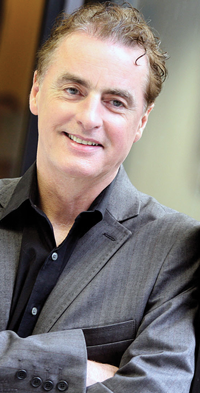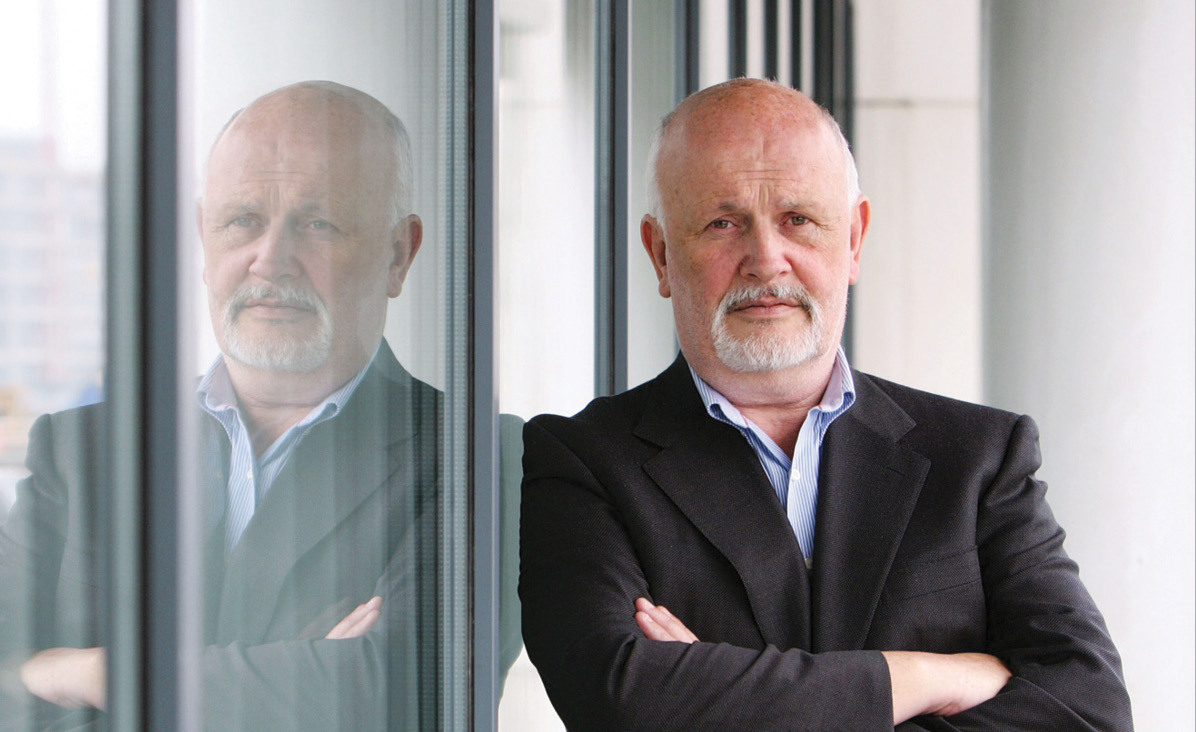Music across the generations
 From “being the only game in town” to competing with a plethora of radio stations which are doing similar night-time shows, Dave Fanning still loves his job but laments the death of the golden era of rock and roll. He talks to Meadhbh Monahan.
From “being the only game in town” to competing with a plethora of radio stations which are doing similar night-time shows, Dave Fanning still loves his job but laments the death of the golden era of rock and roll. He talks to Meadhbh Monahan.
Music and movies have always been the iconic DJ’s passions, but with less work available than in the last decade, the 57-year-old is itching for more excitement. An exclusive interview with David Bowie would be the ultimate goal. “He’s the biggest enigma in music: where is David Bowie?” Fanning wonders.
The ‘Fanning Sessions’ began in 1980 and became an institution for up-and-coming bands which would send in their demos in the hope that Fanning would give them some airspace. The first Fanning Session featured U2 and Fanning remains friendly with them today. Fanning laughs as he recalls his night time show. “Every band in the country would come in to me live, Gerry Ryan would come in naked, or make a fool of himself, or throw drink at them or something and it was all one big party.”
Generally compared to the legendary BBC Radio One presenter John Peel for his ability to spot and promote new music, Fanning is saddened that those days are over. “I’m not even needed at all in a John Peel sort of way, to show people the next big thing.” Gone are the days when you turned on the radio and “a new piece of magic would jump out at you.”
Asked how technology has changed the music industry, Fanning hesitates, saying: “I can’t say some of the things I want to say because I’ll sound like an old curmudgeon.” He then goes ahead regardless, arguing that instant access to music has devalued it.
“Let me put it this way. Was there a golden age in rock and roll? Yes. Is it now? Most definitely not.”
Rock and roll bloomed between 1963 and 1972 and in the punk era between 1977 and 1984, he argues. Today’s young generation can access a song immediately. “Don’t fool yourself that technology is a good thing for the music industry,” he warns. Good music still exists, people still love music, and Fanning still plays music that he enjoys, including new bands: “But that’s not the point. Music has been de-valued and that’s it.”
While artists such as Rihanna and Beyonce “are great entertainers for the year that we live in,” Fanning feels that the music is too tied in with celebrity “and it’s all a bit sad.” Reality TV has played its part in this phenomenon. “It’s ok to take those programmes as entertainment but people actually believe them.” Bob Dylan and Neil Young “wouldn’t last eight seconds on [The Voice] because they are not good singers but they are the best vocalists I’ve ever heard.” While bands like One Direction have found success from the X Factor, Fanning remains uncomfortable with TV’s control over the pop charts e.g. the X Factor Christmas number one trend.
“It can never go back to the way it was and that’s ok but I just don’t like the way it died,” he reflects.
The three artists who stood out as interviewees during that Golden era, happened to be Canadian: Leonard Cohen, Neil Young and Joni Mitchell.
“It was the first interview that Joni Mitchell had done in eight years and she was there for two hours,” he recalls. Leonard Cohen was “a really intelligent man who was a pleasure to interview.” Other poignant interviews were with The Ramones and Beatles Paul McCartney and Ringo Starr. A member of the Beatles fan-club since he was seven, Fanning states: “The Beatles are the best thing ever.” His favourite song remains ‘Strawberry Fields Forever’.
The Movie Show was a Saturday afternoon stalwart from 1993 to 2001 and saw Fanning flying to London weekly and to Los Angeles every six-to-eight weeks to conduct one-to-one interviews with the stars.
Fanning enjoyed seeing actresses such as Scarlett Johansson and Cameron Diaz progress as they got older, having interviewed both at three different stages in their lives. Julia Roberts “genuinely loves Ireland” and “Johnny Depp was great because we spent the whole interview talking about a guy we both knew who had died of a drug overdose (much to the producer’s annoyance).”
Known for his direct questioning, Fanning doesn’t get intimidated and has never received a directive to not ask questions. “I asked Rod Stewart whether he had ever got the wrong name in the bedroom because he’s been with so many blondes and he roared and laughed,” Fanning points out.
Being at the helm of 2FM since it began in 1979 puts Fanning in a good position to observe the mood of the nation. “The country is in a mess and I genuinely don’t see it getting better in my lifetime,” he tells eolas.
“A lot of people say: ‘There’s no use in playing the blame game,’ but I think there is. Someone should hang for it.” Fanning continues: “Some would say that the IRA ruined this country by its absolute intransigence, madness [and] their idea that if we can’t sit down and talk, we’ll just go out and shoot someone. Then some would say that the guys in suits have ruined this country more. And do you know something? There’s a lot of truth in that.”
He was “glad to see that back” of Fianna Fáil. While the Fine Gael-Labour coalition is “genuinely a heck of a lot better than the last crowd,” he doesn’t like seeing 30 per cent of lotto money going to County Mayo, the Taoiseach’s constituency. “Those kinds of things are terrible.”
The Dave Fanning Show currently airs from 7pm to 9pm every Monday to Thursday and his 10am to 12 slot on a Saturday morning allows him to do more of the “talky stuff”, which he enjoys: interviews, newspaper reviews and quirky items.
“I don’t want to be doing what Pat Kenny or Mary Wilson does every day. I like items that you’d find on page 12 of the evening herald: binge drinking women or middle children, things that stimulate debate.”
He wouldn’t want to “talk to the plain people of Ireland every five minutes.” He notes: “For me, a lot of that complaint radio died with Gerry.”
On his busy career to date, Fanning says: “I can make it sound great but it’s not because when it ends, the work is gone. I could definitely hustle for more work.”
His autobiography ‘The Thing Is…’ was accused by some as being too ‘safe’. “It was very safe,” he admits. “I had a happy childhood, I didn’t have half as many girlfriends as most people.” One thing he says he could have complained about in the book “is that I don’t like the way management in RTÉ makes decisions without thinking of the human being behind those decisions.” RTÉ “is a bit management heavy, a bit civil-servicey and old fashioned,” Fanning states.
Does he have any regrets? “I should have made more money than had more fun and yet that’s a stupid thing to say because all I was doing was work and I never felt it was work: it was all fun.”
Fanning is “not good” with spare time, but he loves spending time with his three children and doing “exactly the same as I do for work” i.e. watching movies and listening to new music.




